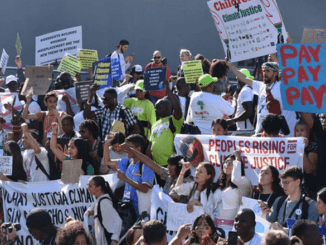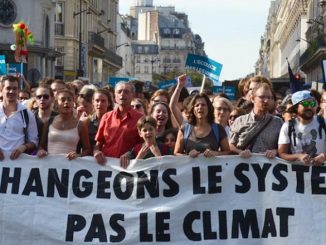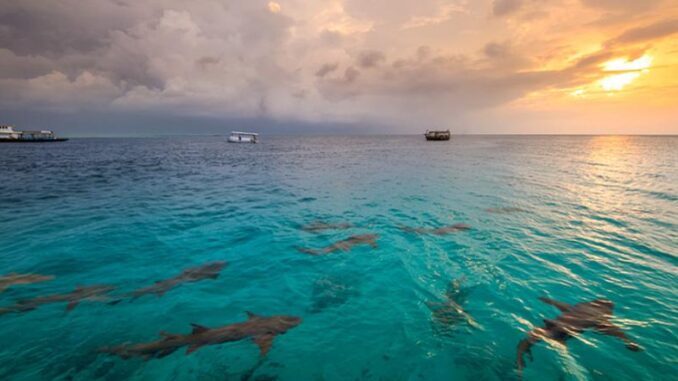
BARCELONA, Spain, May 5, 2024 (ENS) – The 2024 Ocean Decade Conference, held in Barcelona from April 10 to 12, attracted over 1,500 participants from 124 countries and thousands of online viewers. Under the theme “The Science We Need for the Ocean We Want,” this conference emerged as one of the largest-ever gatherings of the global oceanic community.
Hosted by Spain, the Ocean Decade Conference was co-organized by UNESCO’s Intergovernmental Oceanographic Commission, IOC/UNESCO, on behalf of the United Nations system, in close collaboration with the Region of Catalonia and the Barcelona City Council.
The major outcome was the Barcelona Statement, which identifies priority areas for Ocean Decade actions in the coming years.
The three sets of priorities identified in the Barcelona Statement, are:
- – ocean knowledge and science generation to inform management decisions;
- – improved infrastructure for marine pollution monitoring and ocean observations; and
- – cross-cutting issues such as co-designing initiatives and embracing all knowledge systems.
The conference delegates took stock and celebrated achievements three years after the start of the UN Ocean Decade.
Launched in January 2021, the UN Decade of Ocean Science for Sustainable Development (2021-2030), the Ocean Decade, offers a framework for a wide range of stakeholders across the world to use for engagement and collaboration outside their traditional communities to spur a revolution in ocean science.
The conference noted that the Ocean Decade has become the largest global ocean science initiative ever undertaken. The conference delegates applauded the achievements of the Ocean Decade, which, to date, has catalyzed the emergence of over 50 global ocean science programs in which transdisciplinary, international teams from across all sectors of society are working to contribute to fulfilment of the 10 Ocean Decade Challenges.
These 10 challenges articulate the most immediate priorities for the Ocean Decade:
1 – Understand and beat marine pollution
2 – Protect and restore ecosystems and biodiversity
3 – Sustainably feed the global population
4 – Develop a sustainable and equitable ocean economy
5 – Unlock ocean-based solutions to climate change
6 – Increase community resilience to ocean hazards
7 – Expand the global ocean observing system
8 – Create a digital representation of the ocean
9 – Skills, knowledge and technology for all
10 – Change humanity’s relationship with the ocean
Ten conference white papers, prepared by 10 Working Groups, correspond with the 10 Challenges of the Ocean Decade. They prioritize generating knowledge on science-based solutions to six distinct, yet related, issues: biodiversity conservation, climate change, food security, a sustainable ocean economy, pollution, and natural hazards.
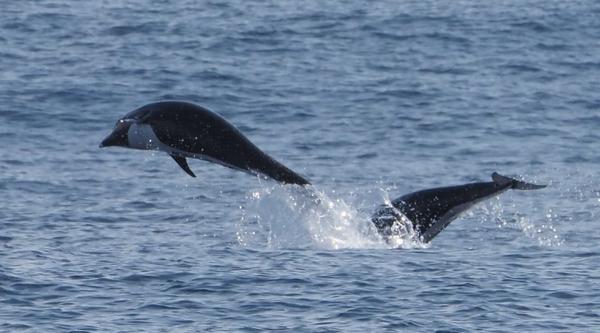
Conference participants provided input to these white papers during discussions that will be incorporated into the final versions of the white papers and an outcomes document that will include a synthesis of the white papers, by the end of May.
This year, conference discussions centered around the development of a common vision for the future priorities of the Ocean Decade – the global ocean science agenda. These discussions were nourished by the results of the Vision 2030 process, including the Vision 2030 Outcomes Report.
The Vision 2030 process is the operational framework that has been designed and implemented to feed this process of reflection and priority setting. It is centered around the 10 Ocean Decade Challenges, which form the central pillars of action for the Decade.
It sets a tailored and specific strategic ambition or end goal, and associated milestones, for each of the 10 challenges.
The strategic ambition for each Ocean Decade Challenge will provide the answer to the question, “What does success look like for this Challenge at the end of the Decade?”
The associated milestones will answer the question, “What do we need to have achieved at different intervals during the Decade to be on the defined path to success for this Challenge?”
The Vision 2030 process was developed to identify future priorities for the Decade in terms of science, knowledge, capacity, resources, or infrastructure that are needed to fulfil each Ocean Decade Challenge, as well as considering the needs to strengthen the linkages across Challenges. It allows the Ocean Decade Challenges to be refined or updated as new issues emerge.
“The Ocean affects global climate cycles, provides humans and animals with close to half the oxygen we breathe, is inhabited by a majority of all species on Earth, and underpins a blue economy that feeds hundreds of millions of people,” conference delegates recognized.
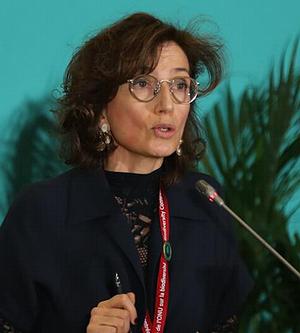
But, they emphasized, the ocean is experiencing rising pressure from overfishing, warming temperatures, acidification, coral bleaching, and pollution with pesticides, herbicides, fertilizers, detergents, oil, industrial chemicals, and sewage as well as marine debris and plastic pollution, including microplastics.
Since the start of the UNESCO-led Ocean Decade in 2021, more than 500 projects have been launched in all regions of the world to improve knowledge and protection of the ocean. Bringing together the international community in Barcelona, UNESCO Director-General Audrey Azoulay welcomed these efforts and called for this positive momentum to continue.
“Since 2021, much has been accomplished based on our three pillars: understanding, educating, protecting. More than 500 projects are being implemented in around 60 countries and more than a billion dollars has been mobilized,” Director-General Azoulay told the conference delegates.
“But there is still much that remains to be done. We must continue to invest in science, continue to educate, alert, raise awareness. Maximum mobilization is our only alternative to save the ocean,” Azoulay stressed.
The culmination of Ocean Decade Week, the conference also featured 120 satellite events. One that attracted lots of attention at the conference in Barcelona, located on the northeastern coast of Spain, was the announcement of the new Cities with the Ocean platform.
UNESCO and 13 cities announced the creation of the Cities with the Ocean platform, a new alliance between UNESCO and coastal cities and ports that is intended to complement the work already underway between UNESCO and its 194 Member States.
With 75 percent of megacities around the world situated along the coast, their population is among the most affected by natural and human-caused ocean hazards – tsunamis, ocean pollution, and the effects of climate disruption – yet they are also the first responders and best placed to implement decisions on a local level to deal with these issues.

UNESCO will support these cities by developing programs suited to their needs. These include enhancing UNESCO’s Tsunami Ready Programme, training urban planners to anticipate the risks of coastal erosion, and collecting essential scientific data for tools developed by UNESCO such as the Global Ocean Observing System.
A first international coastal cities symposium will bring this network together in Qingdao, one of China’s largest coastal cities, next year. In June 2025, this initiative will also be highlighted in Nice, France as part of the discussions at the United Nations Ocean Conference.
Separate Ocean Conference Attracts Donations Worth Billions
The ninth Our Ocean Conference, held April 16-17 at the Stavros Niarchos Foundation Cultural Center in Athens, brought together governments and non-governmental participants who made more than 470 commitments to protect ocean health and security worth nearly US$11.35 billion in total.
The Our Ocean Conference began in 2014 as a United States initiative to draw international attention to the serious threats facing the world’s ocean and to take concrete action around the globe to support marine conservation and sustainable development. Since 2014, the Our Ocean Conferences have generated over 2,600 commitments worth around US$140 billion.
At the 2023 Our Ocean Conference in Panama, the United States made 77 announcements worth nearly US$6 billion.
Held on the theme An Ocean of Potential, the ninth Our Ocean Conference sought to mobilize voluntary, measurable, impactful actions with a clear timeframe, as well as announcements on the successful implementation of previous Our Ocean commitments.
The 2024 Our Ocean Conference gathered 12 high-level international dignitaries – heads of state, presidents and prime ministers – as well as 70 ministers and other official delegates from 115 countries and 10 international organizations to discuss sustainable tourism in coastal areas, marine plastic and microplastic pollution, shipping, and boosting the green transition in the Mediterranean.
The commitments made during the Our Ocean Conference span six areas of action:
- marine protected areas;
- sustainable blue economies;
- climate change;
- maritime security;
- sustainable fisheries; and
- marine pollution.
As the conference host, Greece identified four additional focus areas: sustainable tourism in coastal areas and islands; green shipping; plastic and microplastic pollution; and the green transition in the Mediterranean Sea.
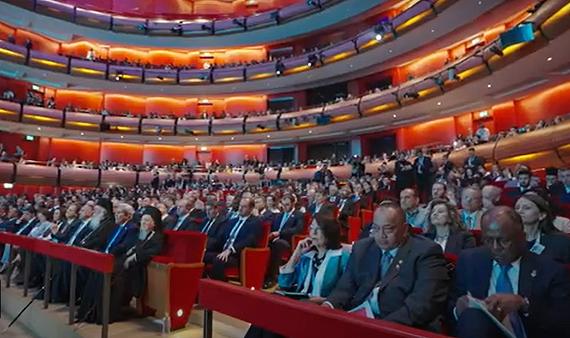
Greece’s commitment covers sustainable fisheries and marine protected areas in the East Mediterranean Sea and seeks to ban bottom trawling in all marine protected areas by 2030,
Greece plans to expand its marine protected areas to meet the 30×30 target of the Kunming-Montreal Global Biodiversity Framework – to conserve 30 percent of terrestrial, inland water, coastal, and marine areas by 2030.
Greece also will establish a national monitoring and surveillance system of the marine protected areas, and conduct marine habitat mapping of these protected areas.
In addition to the Our Ocean Conference 2024 official agenda, the conference featured numerous side events and a film festival.
A Race for the Ocean
The yacht Ericsson 1 – The Legend sailed to the Marina of Flisvos on April 15 to appear at the ninth Our Ocean Conference. The boat’s crew set off from Genoa, Italy to deliver the Relay4Nature to the leaders of the Our Ocean conference.
On April 15 in Athens, Greek Prime Minister Kyriakos Mitsotakis received Nature’s Baton from The Ocean Race Chairman Richard Brisius; the UN Secretary General’s Special Envoy for the Ocean Peter Thomson of Fiji; and Greece’s Prime Minister’s Special Envoy for Oceans and Coordinator of the Our Ocean 2024 Conference, Dr. Dionysia-Theodora Avgerinopoulou.
Nature’s Baton is a symbol of the Relay4Nature joint initiative between Special Envoy Thomson and The Ocean Race. It was created to help give the ocean a voice on the issues affecting our planet at events where decisions are made about the environment.
“Carried across land and sea to Athens today, Nature’s Baton brings to the Our Ocean Conference its message of connectivity. A universal commitment from around the world is required if we are going to succeed in reversing the decline in the ocean’s health. No healthy planet without a healthy ocean!,” declared Thomson at the Nature’s Baton hand-over ceremony.
Addressing participants and describing fond childhood memories of Greece, Brisius declared, “At The Ocean Race we have fully transformed from being a race around the world for over 50 years to being in a race for the ocean.”
Dr. Avgerinopoulou observed, “It is crucial to have the global ocean community here with us. Passing the message of ocean protection through sports is key as the threat is out for everyone, and sport has the power to convey the message to a key audience – the younger generations.”
Both these conferences build on last year’s legally binding definitive treaty, the first to ever govern the high seas – the areas beyond national jurisdiction.
On June 19, 2023, nearly 200 countries adopted by consensus the legally binding treaty with the lengthy name of the United Nations Biodiversity of Areas Beyond National Jurisdiction Treaty, or BBNJ Treaty, also known as the High Seas Treaty.
“One of the main objectives of the Our Ocean Conference 2024 and also next year’s UN Ocean Conference in Nice [France] is the ratification of the BBNJ treaty for the protection of underwater biodiversity in the High Seas,” Special Envoy Avgerinopoulou said.
“We also need to keep working to combat ocean plastic and microplastic pollution; make sure the blue economy sectors move towards a sustainable path; the shipping sector moves towards decarbonisation as fast as possible; and take care of the Mediterranean Sea, a very fragile ecosystem,” Avgerinopoulou advised.
On April 17, after the closing ceremony of the Our Ocean Conference, the Relay4Nature continued its journey with the aim of passing Greece’s message to the organizers of the 10th Our Ocean Conference, planned for 2025 in Busan, South Korea.
Featured image: Sharks at sunset, Alimatha, one of the atolls in the Maldives Islands (Photo by Riccardo Maria Mantero)
© 2024, Environment News Service. All rights reserved. Content may be quoted only with proper attribution and a direct link to the original article. Full reproduction is prohibited.

